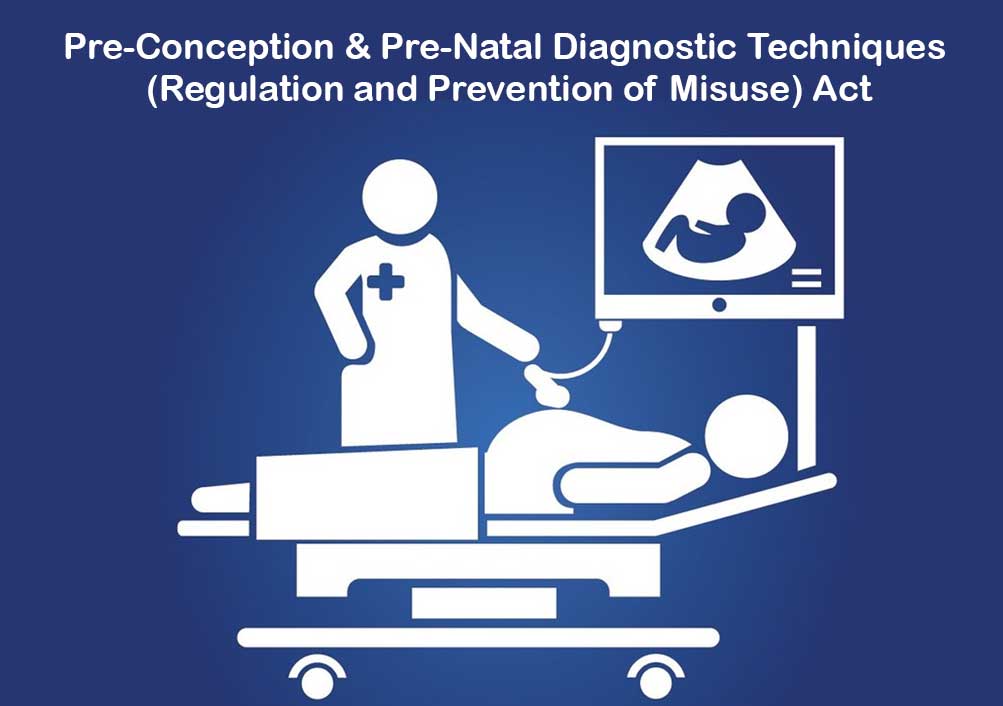In PCPNDT matters, FIR can be lodged & investigation can be conducted by Police but cognizance can be taken by Court only when mandate of Sec.28 is fulfilled: P&H HC

Read Judgment: Dr. Aparna Singhal v. State of Haryana and another
Monika Rahar
Chandigarh, January 25, 2022: While dealing with a case involving the arrest of the petitioner-accused and others for allegedly carrying out a sex determination racket in New Delhi, the Punjab and Haryana High Court has reiterated that an FIR under the Pre-Conception and Pre-Natal Diagnostic Techniques (Regulation and Prevention of Misuse) Act, 1994 (Act) can be lodged and the offences under the Act can be investigated by the Police but cognizance can be taken by the Court only on the complaint filed as per Section 28 of the Act.
The factual background of this case was that after receiving secrete information about a sex determination racket that was being run in New Delhi, a team of appropriate authorities under the PC&PNDT Act conducted a raid with the help of a decoy patient and arrested one Smt. Pinki @ Roma Devi, her husband and the petitioner who conducted the ultrasound of the decoy patient at M/s Mantracare X-Ray and Diagnostic Centre Gurugram and disclosed the sex of the foetus as ‘Female’.
An FIR was registered under Section 23 of the Act and Section 120-B of IPC against them. Hence, the petitioner filed the present petition under Section 482 of Cr.P.C. praying for quashing of said FIR.
The petitioner’s counsel, while making a reference to Sections 17 and 28 of the Act, contended the FIR for an offence under the Act ought to be registered on the complaint of the duly notified District Appropriate Authority (DAA) (a three members body) and this was not the case in the present case. The counsel submitted that herein, the FIR was lodged on the complaint of the second respondent who was neither a member of the DAA nor was he authorized by the DAA to file the FIR.
It was also contended that the search and seizure were not conducted in compliance with Section 30(2) of the Act which required all searches and seizures under the Act to be in consonance with the provisions of the Cr.P.C.
The State stated in its reply that after receipt of the secret information regarding the illegal business of sex determination by the Civil Surgeon, Gurugram the same was communicated to the other members of the DAA. Then the DAA under the PNDT Act authorised the second respondent and other team members to take legal action as required. It was also stated that after the raid, the entire incident was brought to the notice of the three-member DAA which after considering the facts and circumstances asked the second respondent to initiate legal proceedings against the accused including the petitioner.
It was also submitted that the CCTV footage of the incident was taken from the spot as evidence regarding the conduct of the sex determination test.
The question which arose for the consideration of the High Court was whether the registration of the FIR and the consequent investigation was illegal as the FIR was not registered on the complaint of the District Appropriate Authority?
In this regard, the Court made reference to the Division Bench decision of this Court on Hardeep Singh Vs. State of Haryana and Ors., CRM-M- No. 4211 of 2014, wherein this question was addressed and it was held that that FIR can be lodged and the offences under the Act can be investigated by the Police but cognizance can be taken by the Court only on the complaint as per Section 28 of the Act.
As per the Act, Section 17 provides for the constitution of the three-member appropriate authority, while Section 28 of the Act debars a Court from taking cognizance of an offence under the Act except on the complaint of the Appropriate Authority concerned or any person authorised in this behalf by the Central or State Government or the Appropriate Authority.
Reverting back to the case, the Court observed that the position in the present case was that FIR was lodged on the complaint of the second respondent. It was the case of the respondents that the police was investigating the matter and after completion of the investigation, the police would file a `Kalandra’ before the DAA Gurugram. Thereafter, a criminal complaint along with Kalandra would be filed against the accused as per Section 28 of the Act before the Chief Judicial Magistrate, Gurugram.
Thus, in light of the clear exposition of law laid down by the Division Bench in Hardeep Singh’s case (supra), the Court concluded that no case for quashing the FIR and the ongoing investigation was made out.
Sign up for our weekly newsletter to stay up to date on our product, events featured blog, special offer and all of the exciting things that take place here at Legitquest.




Add a Comment